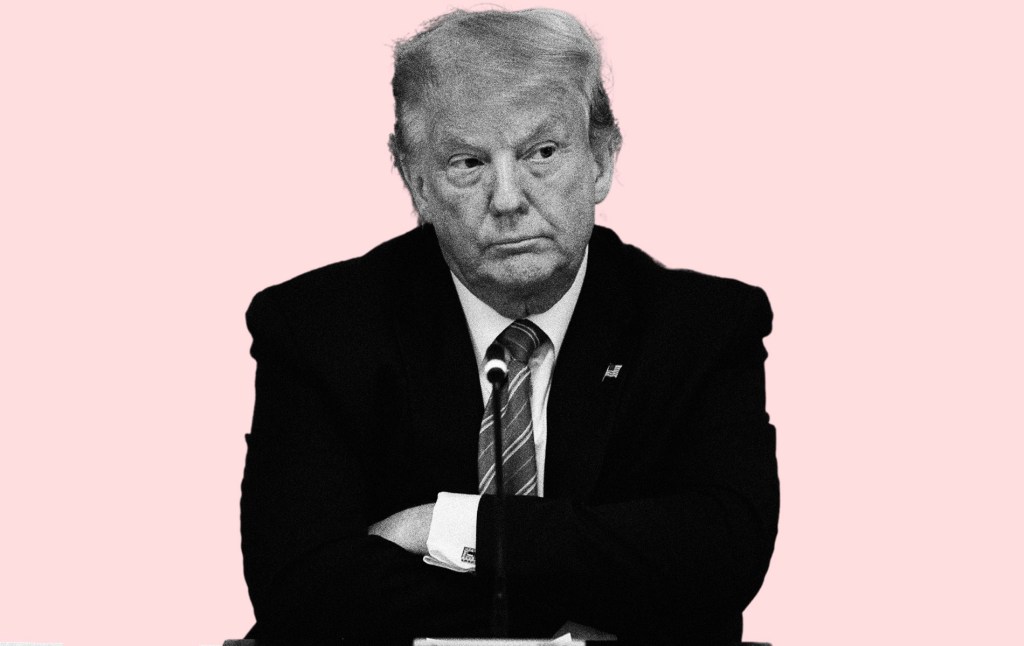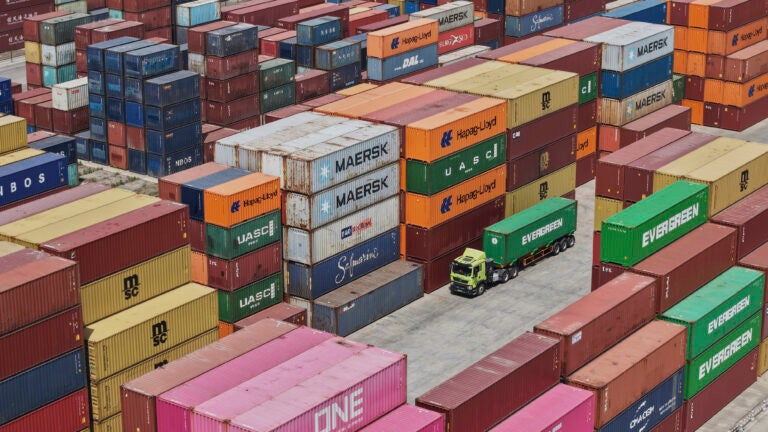Trump’s Tariff Strategy: Economic Consequences and Controversies
President Trump imposes steep tariffs targeting key trading partners, challenging economic theories and raising concerns about trade relationships.

Trump's stubborn, peculiar views are a stark reminder as to why, in retrospect, Congress should never have put so much unchecked tariff power into the hands of the president—any president—and why, even after today's short pause, it should act now to take some of that power back, by veto-proof majority if needed.
 The Dispatch·9d·ReliableThis source consistently reports facts with minimal bias, demonstrating high-quality journalism and accuracy.CenterThis outlet is balanced or reflects centrist views.
The Dispatch·9d·ReliableThis source consistently reports facts with minimal bias, demonstrating high-quality journalism and accuracy.CenterThis outlet is balanced or reflects centrist views.
The problem with Trump’s so-called Liberation Day tariffs is that they’re not smart or targeted, and will thus be inflationary across the board — rather than aiding strategic industries relative to the rest of the economy.
How Sweeping Tariffs Came to Be and Why It Matters
 In These Times·10d·Mostly ReliableThis source is generally reliable but sometimes includes opinion, propaganda, or minor inaccuracies.Far LeftThis outlet leans heavily toward left-wing views.
In These Times·10d·Mostly ReliableThis source is generally reliable but sometimes includes opinion, propaganda, or minor inaccuracies.Far LeftThis outlet leans heavily toward left-wing views.
The Trump administration is probably right that, in some cases, barriers to trade that foreign countries set up have lowered the amount that the United States exports to those places and exacerbated trade deficits.
‘Totally silly’: Trump’s focus on trade deficit bewilders economists
 Boston Globe·10d·ReliableThis source consistently reports facts with minimal bias, demonstrating high-quality journalism and accuracy.Leans LeftThis outlet slightly leans left.
Boston Globe·10d·ReliableThis source consistently reports facts with minimal bias, demonstrating high-quality journalism and accuracy.Leans LeftThis outlet slightly leans left.
Summary
President Trump has enacted wide-reaching tariffs based on bilateral trade deficits, drawing criticism from economists who argue this method oversimplifies complex trade dynamics. While the administration believes it will bolster American manufacturing, many experts contend it won't effectively address the underlying economic issues and may harm overall trade relationships. The use of emergency powers to impose these tariffs has triggered global economic uncertainty, with responses from affected nations expected. This initiative highlights the divide between political ideologies and economic realities in U.S. trade policy.
Perspectives
Trump's emphasis on bilateral trade deficits as a measure of trade policy is fundamentally flawed, and many economists argue it misrepresents the complexity of international trade relationships.
The implementation of broad tariffs based on trade deficits may negatively impact U.S. economic growth and exports, leading to potential job losses rather than gains.
While some believe tariffs can incentivize fair trade practices, the arbitrary nature of Trump's new tariffication approach raises concerns about its effectiveness and the economic repercussions for various trading partners.